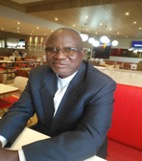Prof Makala Lilemba
The Lusata cultural ceremony of the Mafwe ethnic group in the Zambezi region has just ended. The yearly ceremony attracted high level traditional and political delegates from three countries. The Namibian government was represented by the Vice President, while Zambia and Botswana had Senior Chief Inyambo of Mwandi, a Chieftains from Mambova and Simwine Chika in attendance. The Bukalo Traditional Authority sent the Ngambela which is spectacular because the two traditional authorities’ relations have been cold.
Although there is a committee of the traditional authorities tasked to attend to traditional issues in the region, the members are suspicious of one another. The areas of jurisdiction of the two newly created traditional authorities formerly under Mamili are not officially demarcated. As for now, there are conflicts in Mamili’s area of rule from Mafuta up to Lianshulu and Singalamwe because in each village there are two groups representing one chief or the other.
These conflicts sometimes end up in physical fights and long dragging cases of deciding who should be the legitimate induna. Worse still is the inability of the subjects to sit together and discuss issues of development in their areas.
This scenario is the order of the day in the whole country, that in some cases traditional authorities have been without chiefs for years. Yet the government is hiding under the shell of non-interference in traditional matters, but will do so where their interests are invested.
This is double standard of the highest order hinging on divide and rule, the same trick used by the South African regime. But Namibia is not the only country, which had traditional authorities at the time of independence. Equally true is the fact that colonizers found already established systems of government as testified by Chazan and others (1992) that when Europeans arrived in Africa, they encountered indigenous states which had long established patterns of interaction within their own cultural settings.
Indeed some studies indicate that African communities had systems of education with different characteristics from that of the colonial Western education (Tempels, 1959, Oruka, 1990). In a similar vein, Barker (1999) asserts that the old African philosophy of education emphasized social responsibility, the development of manual, artistic and intellectual skills, political awareness and most importantly spiritual and moral values aimed at producing an individual who was honest, respectful, skilled, knowledgeable, co-operative, well-versed in the community’s customs and traditions and who conformed willingly to the social pattern of community.
By failing to listen to reason at traditional level, many African political leaders lost their senses and start humiliating their traditional leaders.
If there is somebody who should understand how the African traditional system works, it should be African political leaders themselves as they were born, grew up and married into the traditional African system.
As Nyathi argues in the African magazine (December 2004/January 2005, p. 6) that Africans embrace European “official knowledge” and because of its influence, lost their “identity” and are now “confused” leading to loss of their useful cultures and values, and behave in ways which are so strange and foreign to their own.
This state of affairs undermined the ability to enhance cultural indigenous learning among African children. Although we are living in a technologically advanced world, it is still possible to live in it and harbour our traditional instincts.
As Mbeki (1999) puts it, “We must embrace the culture of the globe, while ensuring that we do not discard our own.” Many nations have undergone transformation by incorporating technology into their traditional lives and had worked wonders. According to Akinpelu (1981) in the African context, to talk of an educated man is to describe a man who combines expertise with the soundness of character and wisdom and judgment.
He is the one who is equipped to handle successfully the problems of living in his immediate and extended family, one who is well-versed in the folklores and genealogies of his ancestors…one who expresses himself in proverbs leaving his learners to unravel his thoughts.
An educated African is one who combines the Western system of education and the African traditional values and norms and manages to sit with his elders in judging issues of the community.
In a similar vein, Elleni Tedla (1995) maintains that the 21st century requires the development of a new form of education that is firmly anchored in indigenous African thought and education while it judiciously borrows ideas and technologies from other peoples of the world. She calls this education Sankofan education, Sankofa being an Akan (Ghanaian) word meaning, “Return to the source and fetch, “ in this case resource being our culture, heritage and identity. For the Namibian political elite, it is important to always grace the cultural ceremonies of each ethnic group for national cohesion and cultural education.
That will demonstrate to the citizens that their cultures and traditional authorities are being taken seriously by the power that be.
But when African political leaders resort to banging heads of traditional leaders for mere votes, what they fail to see is that they lose credibility and votes. The large crowds drawn by cultural ceremonies should not scare or threaten the political leadership, it is a simple sign that people are first raised in traditional communities and only become active in political life later. It is therefore necessary for the political leadership to tame the traditional authorities in order for them to win the hearts of their electorates, leading to national cohesion.


